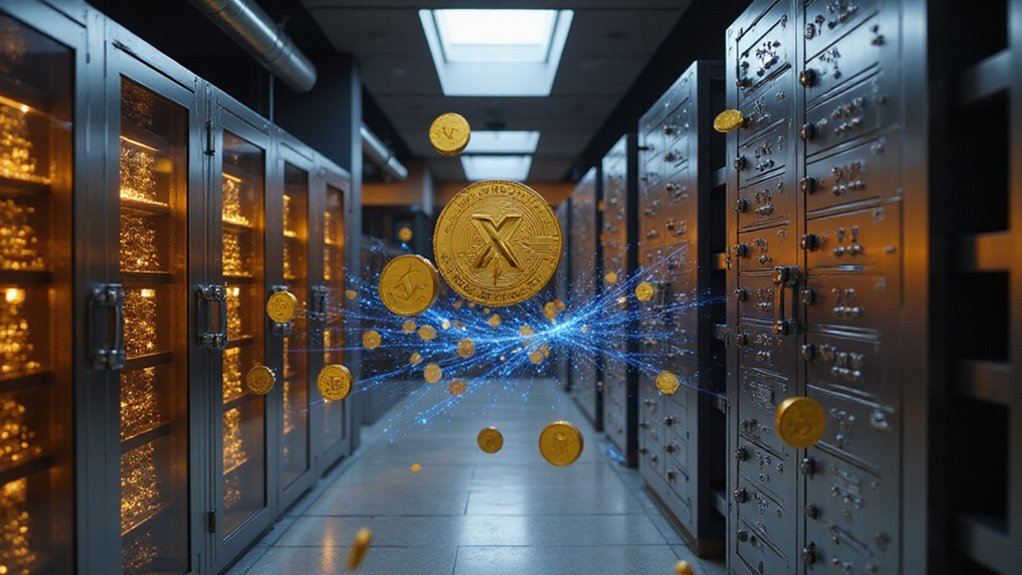Token utility defines the practical functions that cryptocurrency tokens perform within their native blockchain ecosystems—serving as digital keys for accessing services, paying transaction fees, participating in governance, or releasing premium features. Unlike security tokens that represent ownership stakes, utility tokens theoretically derive value from their operational necessity rather than speculative appreciation (though this distinction often blurs when tokens moonshot). Genuine utility correlates with adoption and price stability, while tokens lacking substantive use cases typically exhibit the volatile behavior one might expect from digital assets with questionable fundamental value propositions.

While cryptocurrency enthusiasts debate whether digital assets represent the future of finance or elaborate digital collectibles, utility tokens occupy a distinctly pragmatic niche within this speculative landscape. These tokens function as digital keys rather than speculative instruments, granting holders access to specific services, features, or governance rights within blockchain ecosystems—a invigoratingly straightforward concept in an industry notorious for convoluted explanations.
Unlike Bitcoin, which primarily serves as digital money (or digital gold, depending on the prevailing narrative), utility tokens enable operational functions within decentralized applications. Consider Filecoin’s FIL token, which provides access to decentralized storage services, or Basic Attention Token’s BAT, which rewards users for engaging with digital advertising—both examples of tokens with clear, measurable utility beyond mere price appreciation.
Utility tokens function as digital tools with measurable purposes, distinguishing themselves from purely speculative cryptocurrencies through clear operational value.
The practical applications extend across various functions: paying transaction fees within blockchain networks, releasing premium platform features, participating in decentralized governance through voting rights, and accessing specialized resources like bandwidth or storage space. Some tokens even facilitate loyalty programs within Web3 ecosystems, though whether these represent genuine innovation or clever rebranding of traditional reward systems remains debatable.
Distinguishing utility tokens from security tokens proves vital for both regulatory compliance and investor understanding. Security tokens represent ownership in real-world assets or equity claims—essentially traditional securities wrapped in blockchain technology. Utility tokens, conversely, focus on access rather than investment returns, though this distinction occasionally blurs when tokens appreciate markedly in value (creating the peculiar situation where access keys become investment vehicles).
Token utility directly influences ecosystem dynamics and value proposition. Higher utility typically correlates with increased adoption and price stability, while tokens lacking substantive use cases often exhibit speculative behavior and volatility. Multiple utility features tend to sustain long-term ecosystem growth, creating network effects that reinforce token retention and circulation. For investors managing diverse token holdings, portfolio trackers can consolidate and monitor utility token performance across multiple exchanges and wallets in real time. The gaming industry exemplifies this through platforms where Enjin Coin enables players to create, manage, and trade in-game assets with real-world value.
Most utility tokens are issued on established blockchain platforms like Ethereum, leveraging existing infrastructure rather than building proprietary networks. This pragmatic approach allows developers to focus on utility design rather than blockchain mechanics—a sensible strategy given the complexity of maintaining secure, scalable networks.
Ultimately, token utility represents blockchain technology’s attempt to create genuine value propositions beyond speculative trading.
Frequently Asked Questions
How Do I Evaluate if a Token Has Genuine Utility or Is Just Speculative?
An astute investor examines whether tokens serve actual functions—paying transaction fees, accessing services, enabling governance—rather than existing solely for speculative trading.
They scrutinize smart contract functionality, ecosystem integration, and user adoption patterns while remaining skeptical of projects with vague utility promises.
Price stability driven by genuine demand (not hype cycles) and transparent technical foundations distinguish functional assets from elaborate digital collectibles masquerading as revolutionary technology.
Can Token Utility Change Over Time as a Project Evolves?
Token utility evolves considerably as projects mature, often expanding from simple payment mechanisms to multifaceted ecosystem tools encompassing governance rights, staking rewards, and premium access features.
Platform development drives these transformations—blockchain upgrades enable new capabilities while regulatory pressures reshape functions.
Market dynamics and user engagement further influence utility expansion, though one wonders whether such evolution represents genuine innovation or clever pivoting to maintain relevance amid shifting investor sentiment and competitive pressures.
What Happens to Token Value When Utility Decreases or Becomes Obsolete?
When token utility diminishes, market forces respond with predictable ruthlessness—demand evaporates alongside practical use cases, triggering sustained price declines.
Obsolete tokens often approach zero value as holders rush toward exits, creating liquidity death spirals.
The underlying fundamentals collapse entirely, rendering valuation models meaningless.
Platforms may desperately introduce replacement tokens or enhanced functionality, though such efforts rarely restore investor confidence once utility erosion becomes apparent to market participants.
Are Utility Tokens Subject to Different Regulations Than Security Tokens?
Yes, utility tokens face markedly different regulatory treatment than security tokens.
While security tokens must navigate extensive federal securities laws—including registration requirements and investor protection mandates—utility tokens operate under lighter oversight, provided they genuinely facilitate platform access rather than investment returns.
However, this regulatory arbitrage proves precarious; companies must carefully avoid crossing into security territory, where the full weight of securities compliance would suddenly apply with potentially devastating consequences.
How Does Token Utility Affect Long-Term Price Stability and Market Volatility?
Token utility creates demand-driven price floors that theoretically reduce volatility compared to purely speculative assets—though cryptocurrency markets rarely respect such theoretical constructs.
Tokens with genuine utility (governance rights, transaction fees, platform access) maintain baseline demand regardless of market sentiment, providing relative stability.
However, speculative trading often overwhelms utility-based demand, creating the paradox where functionally valuable tokens still experience wild price swings that would make traditional economists weep.









